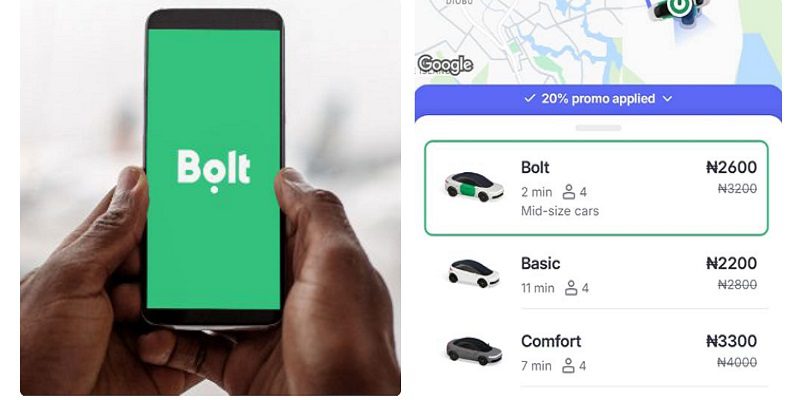Following reports that Kenyan authorities have ordered ride-hailing companies to effect a 50 per cent increase in fares, Bolt, a leading ride-hailing company in the country, has said that it remains committed to balancing the earnings of drivers with affordability for the riders.
Senior General Manager of Rides in East Africa, Dimmy Kanyankole, disclosed this in a statement to Technext.
Acknowledging the reported price increment as a government recommendation, Kanyankole said the company is actively engaging with all relevant stakeholders, including government authorities, rider and driver representatives, to ensure that its own considerations reflect the collective needs and interests of the entire ecosystem.
Noting that Bolt welcomes constructive dialogue aimed at creating a fair, transparent, and sustainable ride-hailing environment, he pointed out that its overall priority would be striking a balance between what drivers earn and the affordability of the service to passengers.
“As a platform that serves millions of riders and thousands of drivers, our priority remains striking a balance between affordability for passengers and improved earning potential for drivers. The government’s guidance provides an opportunity for sector-wide alignment, and we are carefully reviewing how these recommendations integrate with our long-term business strategies and market commitments,” Kanyankole said.

Drivers’ protests, fare increase and Bolt’s position
This development follows series of driver protests calling for increased earnings and overall welfare improvement.
In July 2024, drivers protested high commissions, unfavourable fares, and the reluctance of the authorities to compel ride-hailing companies to accept a fixed minimum fare of 300 Kenyan shillings (Ksh) per trip as stipulated by law.
Read here: Uber and Bolt drivers in Kenya protest non-implementation of 18% commission, Ksh 300 minimum fare
A driver who spoke about the matter said that the absence of enforcement “puts the drivers in a tight spot as they have very little left after factoring in fuel costs and the commission platforms like Uber and Bolt take.”


The drivers also threatened to start bidding for trips offline, a move that would take the price determination away from the app companies.
A month later, Bolt announced a 10 per cent increase in fares on its app. Per the new arrangement, the base fare for Bolt’s Economy category will be increased from 200 to 220 Kenyan shillings (Ksh).
But that simply wasn’t anywhere near the fare the drivers believed was fair and just.
Thus, last month, the Transport Workers Union of Kenya (TAWU Kenya) announced its intention to file a petition against ride-hailing companies, Uber and Bolt, over what it describes as unfair, exploitative, and unlawful digital labour practices that violate drivers’ constitutional rights.
And just last week, Kenya’s Ministry for Roads and Transport directed ride-hailing companies to immediately adopt the pricing guidelines suggested by the Automobile Association of Kenya (AAK).
This amounts to a 50 per cent hike in fares. While this may come as good news for drivers who had given the companies seven days to adjust to the new pricing, for passengers, this might present some worry as they, too, grapple with worsening economic realities.


Bolt, however, acknowledged the concerns of the drivers and says it remains open to engagement.
“We recognise that drivers have raised concerns around pricing and earnings, and these issues have always been part of our internal assessments. We remain open to continue engaging with key stakeholders to arrive at solutions that sustainably benefit all stakeholders,” the company said.








